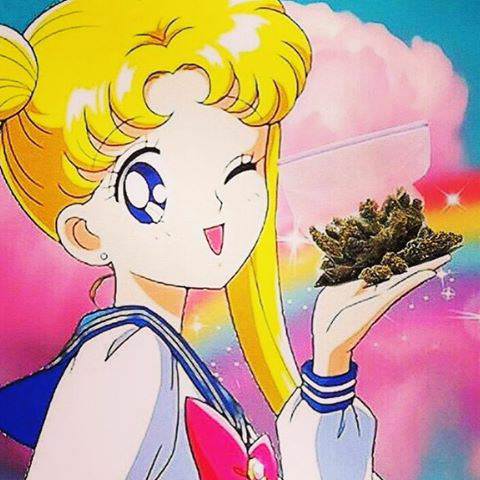Summary: A recent UK government inquiry into the challenges faced by the film and high-end television industry has recently received submissions from major Hollywood studios advocating for KYC (know your customer) rules for hosting providers, similar to banking regulations to identify money laundering. If adopted, this would help them to identify people hosting pirated content.
The submissions are united in identifying the same solution to this problem: the UK must implement a ‘Know Your Business Customer’ regime to compel commercial entities (including online intermediaries) to establish the true identity of their business customers as a precondition for selling, and receiving payment for, digital services.
The inverse should also be true … if businesses want to know about their customers … customers should also know every detail about the business they are dealing with.
When we pirate its called breaking the law
When they pirate, it’s just another normal business day
And in case you don’t know what they pirate … they pirate profits, raid workers unions, scavenge privacy rights and invade your personal space
deleted by creator
deleted by creator
Also, they still break the law and ask the question: “What the fuck are you going to do about it? Sue us?”
They like to whine and cry that piracy makes them lose money, but the opposite is true (at least in my case.) I wouldn’t have bought half the games I did if I hadn’t first pirated them to try them out. I’m certainly not tossing $60+ dollars on something I “might” like otherwise.
That’s called an inconvenient truth. The fact of the matter is, if piracy was eradicated, concerts would be near empty and no one would know the music. Films that don’t leak don’t generally do as well unless you count blockbusters and even then, take Spider-Man, even if people pirate, fans will go and see it a few times. The problem isn’t the piracy, it’s that they can’t profit off of it directly.
I disagree on the concert front. How many people really discover new music through piracy? Sure, downloading it once you know about it, but these days I doubt it’s a way most people discover new stuff.
How many people really discover new music through piracy?
Napster was amazing for this. You’d start by searching for something specific but it would show you the library of the person you were downloading from. Browsing through their library would lead to all kinds of discoveries. Seeing the raw data yourself and being your own recommendation algorithm was the shit.
That does sound good but I can’t imagine it’s quite as good as it once was?
How many people really discover new music through piracy?
Everyone I’ve ever known. I mostly listen to metal, which undeniably became what it is because of people mailing pirated cassettes in the early 80s. 8 of my 10 favorite bands, I discovered by finding someone with good taste on Soulseek and grabbing the stuff I’d never heard of before. Piracy is key in the spread of underground music.
Artists that sell out stadiums wouldn’t be affected much, but the ones that actually need the concert income absolutely would.
That type I think blurs the line on what actually is piracy versus the guy handing out demo tapes on the corner. It’s a sort of a ‘I absolutely don’t want you to go download my stuff, particularly from this link or this link…’
During the height of the RIAA’s rampage and shortly after some groups started actively promoting the model of give away the music, buy the special package. NIN Ghosts comes to mind as one that from what I gather did pretty well.
The face of music piracy seems to have changed a lot though. It used to be that buying albums was expensive, particularly when it was one good song and a bunch of crap. The $1/song thing was clunky, disorganized, and the early efforts with DRM sucked. Now things like Spotify exist and let someone play as much as they like for the price of roughly an album a month and have taken a big lead in making stuff that never would have been on the old radio known.
Music piracy now seems to have shifted to filll in the role that the weird little record shop in the corner of the mall used to play. Finding and keeping those imports, bootlegs, live tapes, etc that you’ll never find on a standard service. Or when places like Spotify yank something that I liked because of some licence BS and say it’s not available well…
That type I think blurs the line on what actually is piracy versus the guy handing out demo tapes on the corner. It’s a sort of a ‘I absolutely don’t want you to go download my stuff, particularly from this link or this link…’
Not at all. I don’t mean artists distributing their own tapes; this was primarily fans copying the tape they bought, recording off the radio, or recording bootlegs of concerts. (see also) There was even the ad campaign driving home that making your own cassettes in such a manner is illegal and “killing the music industry,” which is obviously didn’t.
As for the rest of what you said, I think it’s important to keep that not everyone obtains music the same way. Plenty of people use ripping software, modified client software, etc. to pirate via streaming services too. It’s not just filling a niche, but a reliable source of mainstream music too (assuming you do it before they pull it down because of the licensing BS). And as a frequent Bandcamp patron, albums can still be expensive and most songs still cost $1 (though, without the shit DRM).

Indeed it was, and there was pushback even then. I was more referencing the tacit approval of piracy rather than active distribution.
The game will always keep evolving. The labels/publishers no longer have much of their previous gatekeeper status but now a new challenge of clearing the signal to noise ratio and having anyone take note amongst the multitudes of options is out there.
The reliability/archivist aspect is a beautiful thing that helps prevent the masking of the past. I keep a number of digital artifacts just to keep them preserved myself. There are a lot of bits of culture only existing today because someone once made a tape off the TV/Radio.
How many people really discover new music through piracy?
I did. I wanted some songs, found a Top 100 whatever-its-called that had these songs and 90-something more, so I downloaded, and even seeded back (on a public tracker) and then just listened to them all. Nowadays, my playlist continues to grow, but most of my songs are from that original 100.
That’s good, but what method do you use for finding new stuff after that? Genuinely curious, considering it myself.
Honestly, just recommendations from YT Music Revanced and Spotify via Xmanager.
The closest I get to discovering new music through piracy is game music. Otherwise I absolutely agree with that sentiment. I certainly ain’t finding out about new bands/singers/whatever pretty much ever through piracy unless it’s in the game I’ve found.
Yeah I do imagine that’s an exception.
Piracy is how I discovered MF DOOM and then I bought all his albums because I wanted to support.
You realise that you can very easily refund Steam games if you haven’t played more than 2 hours and had the game for no more than 14 days. I know it isn’t optimal but still an option to try out a game with less risk. Plus I am usually waiting for sales to buy my games as there are very few games worth 60€ in my opinion.
You realize it’s even easier to pirate a game, play it without worrying about a time limit, and purchase it later if I like it?
The only games I haven’t pirated to try before buying are games that have a demo available.
What about the security complications if the pirated game has some malware inside or a virus or requires the use of a keygen which is infected?
deleted by creator
Haven’t had any issues like that in decades. It’s pretty easy to find trusted sources and not download shady looking files.
I find it weird how “Hey, I want you to listen/watch to what I made.” transformed into “Hey, you can only listen/watch if you paid for it.”
Guess I won’t then…
Hey, you can only listen/watch if you paid for it…
…in increasingly convoluted, limited and expensive ways designed to force you to subscribe to multiple platforms in order to access the same content you had seven years ago except for a lot more money and a lot less choice!
This is it right here.
If I want to watch something, can I do it within 2 minutes?
Now? If it’s not in the current app I’m in and featured, unlikely.
Piracy? Through a handful of services, local or remote, I can be watching that movie in one place in 30 seconds in the highest quality.
What service was once decent has been ruined by capitalism again.
hosting can be anywhere. This will kill the UK hosting industry, and they’ll move to NL.
deleted by creator
Lol, capitalists will never learn. I’m not going to suddenly magically buy your shit with money I don’t have.
😂 you forgot the point where you double and triple buy overlapping streaming offerings because everyone gatekeeps their exclusives
This won’t work… I’ll just host in Russia then, they don’t really care about US copyright violations
Same thought. Why should I even want to host in GB. The host prices are probably higher as well compared to other (geologically) EU countries.
I think they push this pitch all over the EU, the UK one is the only one that hit news thus far I guess. Most people host in NL/France.
I host in Iceland and they practically pay you to use their service it’s so cheap.
Recommendations for hosters? If you have a reflink I’d use if it’s a good plan.
Which provider?
deleted by creator
I bought hosting from Russia in the past, I was never asked to kyc
Didn’t you guys just take a damn hammer to your streaming plans?
@Flatworm7591 Tagging Lemmy Post ‘Hollywood to UK Govt: Investigating Pirates “Increasingly Difficult” * TorrentFreak’ (https://lemmy.dbzer0.com/post/8855303): #Piracy
Outstanding. Truly, marvelous.
hoorays
















